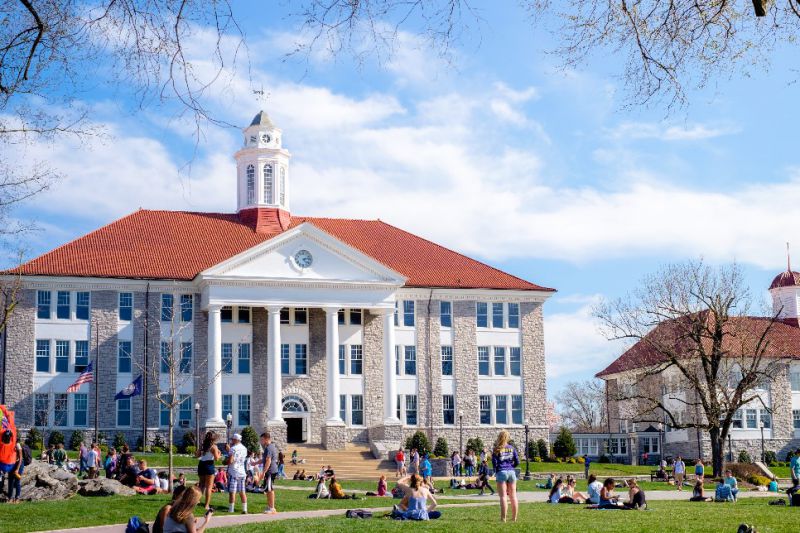When considering higher education in the United States, one of the primary decisions prospective students face is whether to attend a public or private university. Each type of institution offers distinct advantages and considerations that can significantly impact a student’s academic journey and future career prospects. This article explores the key differences between public and private universities, factors to consider when making a choice, and frequently asked questions to help you make an informed decision.
Understanding Public Universities
Public universities are funded by state governments and typically offer lower tuition rates for in-state residents compared to out-of-state or international students. They often have larger student populations and diverse academic programs supported by state funding. These institutions prioritize accessibility and affordability, making them attractive options for students seeking a more budget-friendly education without compromising on academic quality.
Advantages of Public Universities
Public universities generally have robust research facilities and faculty engaged in groundbreaking research. They offer a wide range of undergraduate and graduate programs, with opportunities for hands-on learning and research collaborations. In addition, public universities often have extensive networks of alumni and industry partnerships that enhance career opportunities and post-graduation success.
Considerations for Public Universities
When choosing a public university, consider the impact of varying tuition rates for in-state versus out-of-state students. In-state tuition can be significantly lower, making public universities more affordable for residents. However, out-of-state students may face higher tuition costs unless they qualify for scholarships, financial aid, or reciprocity agreements between states. Additionally, class sizes at public universities can be larger, impacting individualized attention and access to professors.
Understanding Private Universities
Private universities are funded through tuition, donations, and endowments rather than state funding. They often have smaller student-to-faculty ratios, allowing for more personalized attention and mentorship opportunities. Private universities are known for their rigorous academic standards, specialized programs, and emphasis on liberal arts education. They offer a diverse array of majors and minors tailored to students’ academic interests and career goals.
Advantages of Private Universities
Private universities often offer generous financial aid packages, scholarships, and merit-based awards to attract talented students regardless of their financial background. The smaller class sizes foster a close-knit community where students can engage deeply with faculty, participate in research projects, and pursue leadership roles in student organizations. Private universities also provide extensive career services, internship placements, and alumni networks that support professional development and job placement.
Considerations for Private Universities
Despite their advantages, private universities typically have higher tuition costs compared to public institutions. The sticker price of tuition may deter some students, but it’s essential to explore financial aid options, scholarships, and grants offered by the university. Additionally, while private universities emphasize personalized education, some students may prefer the diversity and expansive resources available at larger public institutions. It’s crucial to weigh these factors against your academic and career aspirations.
FAQ about Choosing Between Public and Private Universities
Q1: Are public universities better than private universities in terms of affordability?
A1: Public universities generally have lower tuition rates for in-state residents, making them more affordable than private universities. However, private universities often offer substantial financial aid packages and scholarships to offset tuition costs for eligible students.
Q2: How do class sizes differ between public and private universities?
A2: Public universities tend to have larger class sizes, which can impact individualized attention from professors. In contrast, private universities typically have smaller class sizes, allowing for more interaction with faculty and personalized learning experiences.
Q3: What are the main differences in academic programs between public and private universities?
A3: Public universities often offer a broader range of academic programs and majors due to their larger size and diverse student body. Private universities may emphasize specialized programs, liberal arts education, and interdisciplinary studies tailored to students’ interests.
Q4: How can I determine if a public or private university is the right fit for me?
A4: Consider factors such as tuition costs, financial aid opportunities, academic programs, class sizes, campus culture, and career services when evaluating public and private universities. Visit campuses, speak with current students and faculty, and research each institution’s offerings and resources.
Q5: Do public universities offer the same level of research opportunities as private universities?
A5: Many public universities have extensive research facilities and faculty engaged in cutting-edge research across various disciplines. They often collaborate with industry partners, government agencies, and nonprofit organizations to advance knowledge and innovation.
Q6: Can international students attend public universities in the U.S.?
A6: Yes, international students can apply to and attend public universities in the U.S. International tuition rates may apply, and students should check each university’s admissions requirements, visa regulations, and support services for international students.
Conclusion
Choosing between public and private universities in the U.S. involves evaluating factors such as cost, academic programs, class sizes, and campus culture to find the best fit for your educational and career goals. Whether you prioritize affordability, personalized education, research opportunities, or career readiness, both public and private universities offer unique advantages that can shape your academic journey and future success.
Also Read: The Future of Education: Trends in U.S. Universities




Leave a Reply